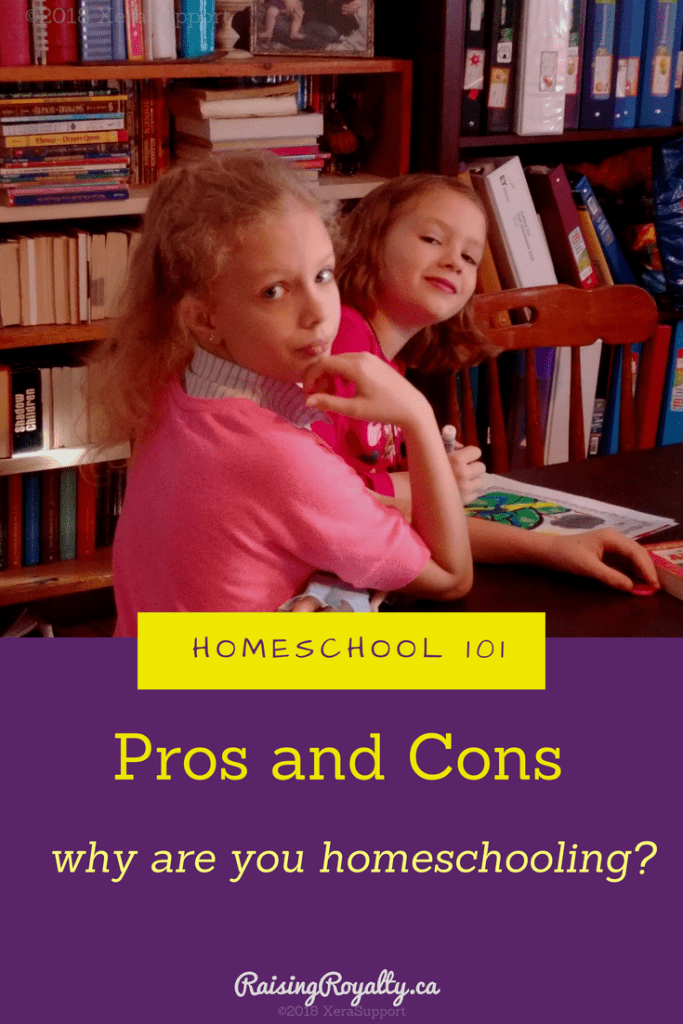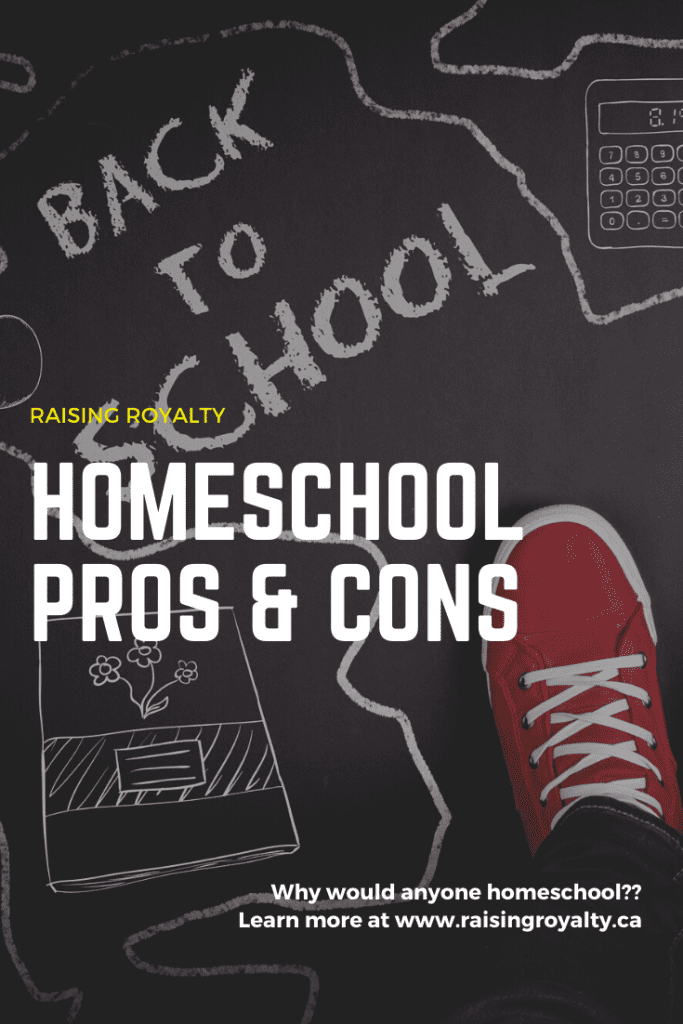
Homeschooling pros and cons: Perfect Kids?
Homeschool pros and cons are plenty. Many parents think that homeschooling their child will magically make all the troubles of educating their child disappear. The image of smiling children, reading stories (at early ages of course!) and building elaborate models often dominates people’s thinking.
For many new homeschoolers, the reason they want to homeschool is because they think it will be easier.
We’ve all seen the commercials.
The ones where mom feeds a baby bright orange baby food, on a white couch…. and there’s no mess anywhere. Or the ones where its supposedly the middle of the night, and baby is snuggled in tight in his crib. Mom, looking fresh and perfectly made-up, without a hair out of place, walks in without disturbing the sleeper, to gaze at her darling in the crib.
It’s all a fairy tale.
New parents know that caring for babies is messy, tiring, and never looks like the commercial. We all roll our eyes at the images in ads or on tv.
Many people, before children, declare they will ‘never’ do or say certain things, and have to eat their words after.
Many new homeschoolers have similar expectations, and end up extremely frustrated when real life doesn’t match up.
Why homeschool?
Homeschooling can help solve a lot of problems families may have with public school. When you compare the homeschool pros and cons, there are a lot of pros when it comes to homeschooling.
But homeschooling is not better than public school — its just different. You will have a different set of problems when you homeschool. And if you aren’t prepared for some of the pitfalls, you can end up frustrated and ready to give up.
Homeschool pros and cons
For example, public school parents have to pack lunches, search for hidden notes and walk to and from the bus stop or school with their children twice a day.
They need to pay school fees, sell the fundraisers and drive to the parent-teacher interviews, school plays and events, and volunteer on the field trips. There are bullies and homework, report cards and standardized testing, and a whole host of other annoyances. None of which are part of homeschool.
But in homeschooling, there are still lunches to be made. There may still be bullies — on the playground, in the coop, in the after-school sport or homeschool art class.
There’s the planning and research of curriculum. I still need to buy school supplies. There are still drives to extracurriculars, coops, and field trips.
And I only wish for fundraisers!!
The reason you are homeschooling is important to consider. There are strong reasons.. and there are impulsive ones.
If you are choosing to homeschool as a reaction against something in public school — without having seriously thought out the options — you may just end up with more frustrations.
Homeschool is a lifestyle
Homeschooling isn’t just an educational choice. It’s a lifestyle choice! If you aren’t prepared to make those adjustments, you’ll quickly find that you simply traded one set of issues for another.
So why are you considering homeschooling?
Common homeschool pros and cons include issues with individual schools, or maybe you have political or religious reasons. Perhaps you have academic concerns, or maybe there are health issues to manage. The underlying desire, however, must be the same, no matter what the trigger is.
You have to WANT to homeschool.
Homeschool pros and cons: what’s the trigger making you consider homeschool?
However, the trigger you have for homeschooling may help determine your philosophy and approach.
Those then help you pick methods and curriculum, which in turn will determine your schedule and plans for your homeschool.
Issues with the school may be social.
Dealing with bullies on the playground (or in the classroom, from the teacher!), or difficulties with getting special needs met and accommodated.
Here, when a parent chooses to bring their child home to homeschool, deschooling becomes essential. The damage done from a toxic environment needs healing. During that deschooling time is when you’ll figure out your approach and methods, whether or not you’ll use curriculum — and which one(s) — and plan out your future homeschool schedule.
Political issues are the trending concerns with public school.
Currently, they include things like standardized curriculum that may not be developmentally appropriate, national or state standards, sex-ed and value-based teachings that some disagree with, plus a perception of an anti-religious or anti-parental-rights bias in the school.
If these are your concerns and the reason you are pulling your children out of the public school system, deschooling is going to be absolutely necessary.
You and your children will both need time to reconnect. Take the time to learn about your children’s learning style, and research the various approaches and methods carefully. You may find it challenging to find curriculum that best suits your family’s lifestyle.
Work backwards to find your reason
Religious and academic reasons are relatively easier to match up with homeschooling methods.
However, it can be harder to “sift through” to find the true ‘why’ of your homeschool. When academic or religious reasons color the choice to homeschool, we can get stuck in the methods or the curriculum, and forget about the end goal.
The key here is to figure out the result you want and work backwards.
Why is a rigorous academic standard so important to you? What do you hope to achieve by making sure all areas of education are studied from your faith worldview and values?
Picture your children as adults, and work backwards to determine your real reason for homeschooling.
What is the most important thing?
Lifestyle needs will affect your homeschool
Some people homeschool for health or career reasons. Perhaps your child as a severe allergy or disability that makes public school dangerous to their health. Or maybe they are a talented child — an actor, athlete, or dancer — and they must travel a lot for their talent and career.
So you homeschool theme so they can keep up with their studies as well as their passions.
Here, you still need to have an end goal in mind. However, your choices in methods and curricula will be determined by your family’s lifestyle, much more than other reasons.
What is your reason for your homeschool?
Whatever your initial reason for choosing to homeschool, you must determine why. Why you homeschool will affect your priorities — family, academics, travel, health, faith, etc. — and that will in turn help you choose an approach and method to this madness. From there, you can narrow down your curriculum choices and lesson plans.
It all starts with knowing why you are homeschooling.
It’s like a business choosing a mission statement. All the company’s values, priorities and culture will be determined by that mission statement. If the organization’s mission is about profit and shareholders, customer service may not be the highest priority.
In homeschooling, your vision is your “mission statement”.
If your main reason is about high academic standards, you may not be all that concerned about signing your kids up for soccer or swim class. Or if your highest priority is a religious faith, you may be very careful about choosing your children’s curriculum. Having your ‘why’ pinned down will make decisions about curriculum, extracurricular classes, and social activities that much easier.
No right or wrong reason
There is no right or wrong reason to homeschool. There is just your reason. Some reasons will help you better when things get tougher, but ultimately, it’s still your choice to homeschool. This is a decision best made by each individual family, without comparing to another family. You are your child’s parent — you are their first and best teacher — you get to decide!
That’s one of the best parts about homeschooling!
Need help getting started homeschooling?
Happy Homeschooling!


